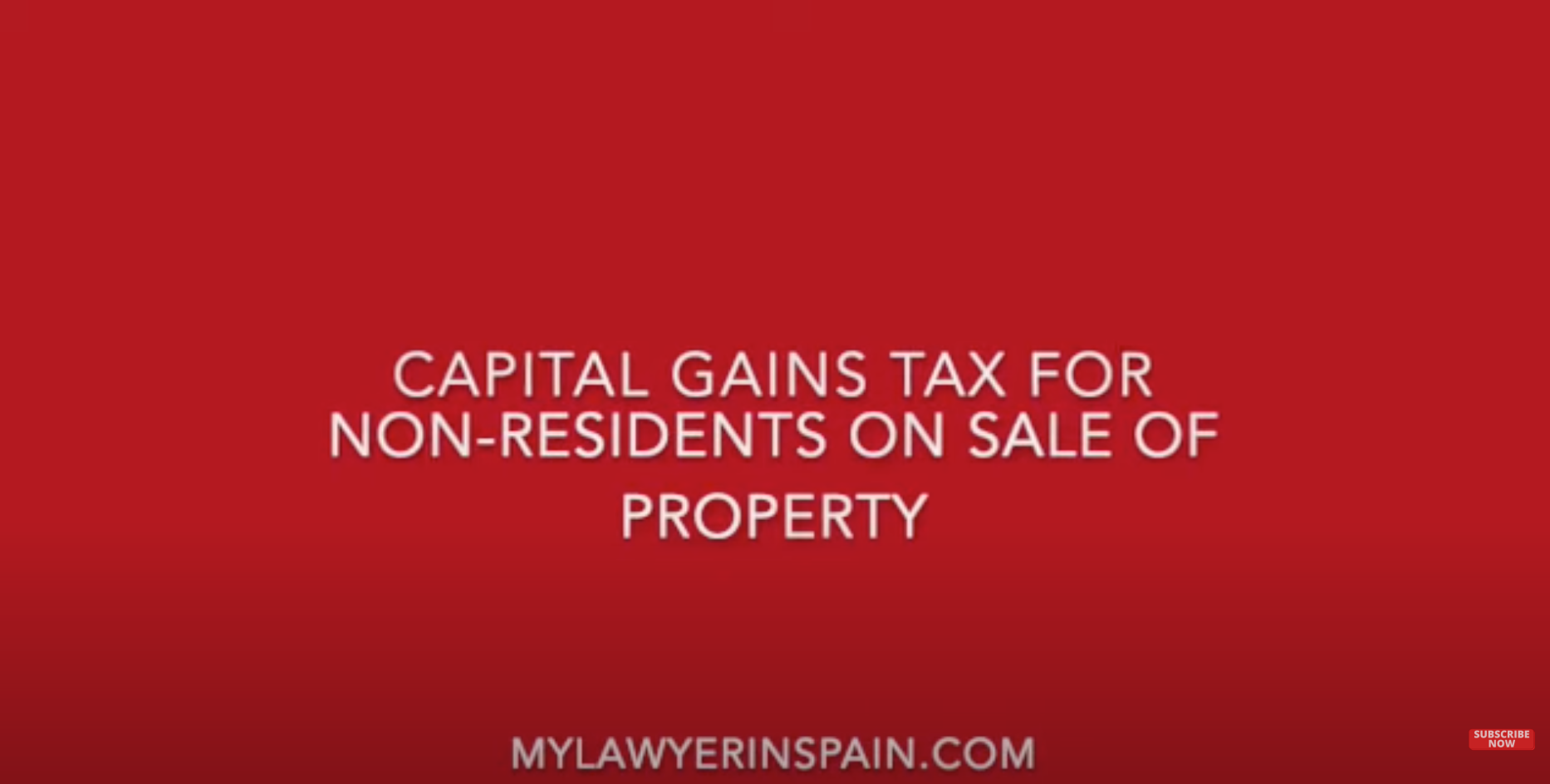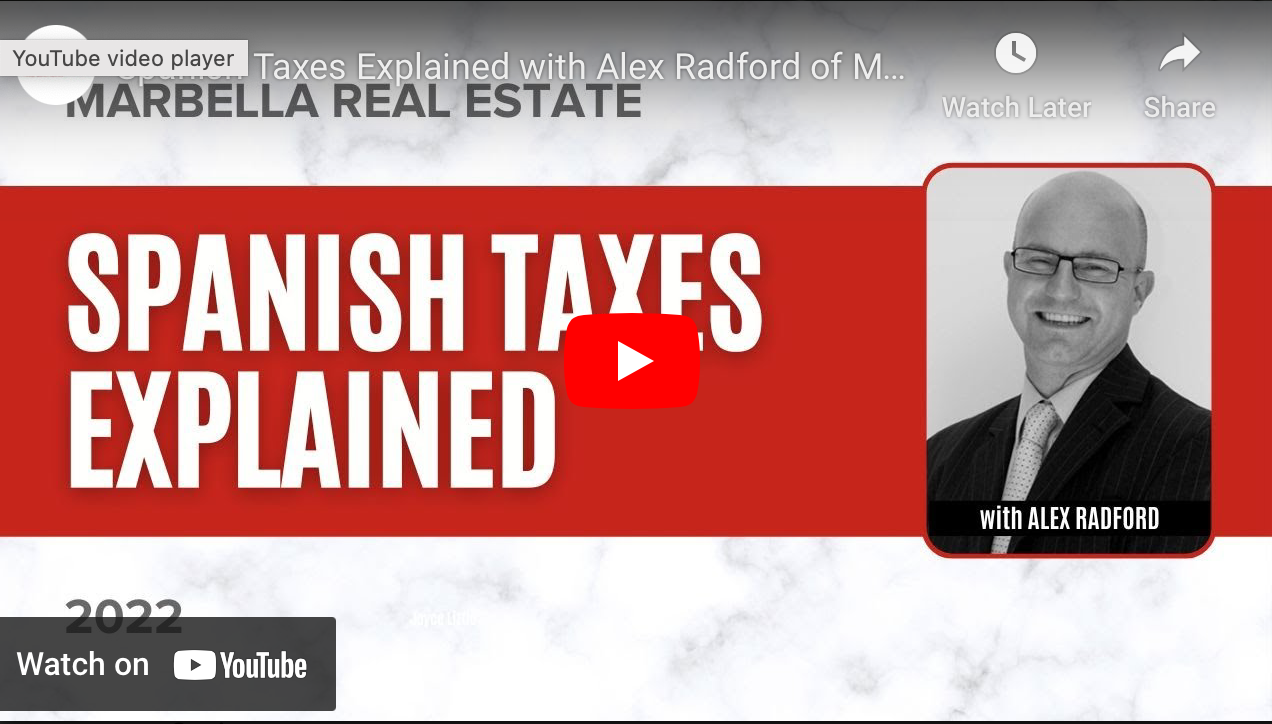Tax Advice in Spain
Are you submitting your Spanish annual non residents income tax returns? Do you know how much inheritance tax you have to pay? Selling a Spanish property and you would like to know how much capital gains tax you have to pay?
Our team of English speaking Spanish abogados and British solicitors have experience in advising on tax matters for non residents in Spain.
We can provide you with tax advice and also assist with the calculation and completion of the necessary tax forms, depending on whether you acquire, sell or inherit a property in Spain in your own name or within a company. The main taxes that a Non Resident would be liable to pay in Spain are as follows:
Income tax
Non resident tax payers who own urban property that is used by the owner for non-economic activities are liable to pay a tax called IRNR (impuesto sobre la renta de no residentes). This tax is based on the estimated income of 1.1% of the properties cadastral value (or 2% if the cadastral value has not been subject to revision or modification since 01.01.1994) and the applicable tax rate is 19% for EU citizens and 24% for Non EU Citizens.
We can assist you with this tax return and require the following documents:
- Copy of owner(s) passport(s)
- copy of owner(s) nies
- Copy of escritura
- Copy of Town Hall Rates (known as IBI)
- If rented, details of income and rental costs incurred
Spanish Wealth Tax
Capital Gains Tax
In general, capital gains obtained from the sale of real estate is determined by the difference between the sale value and the acquisition value, after deduction of the purchase and sales expenses incurred including notary, land registry & legal fees, estate agents commission and taxes.
In order to calculate the tax we require the purchase and sale deeds (escritura de compraventa) together with any invoices for expenses paid either upon the purchase or the sale. The tax rate for sales completed from 1st January 2014 is 19% on the capital gains obtained.The purchaser is under the obligation to withhold and deposit within one month from the date of the signature of the notarised sale deed, at the Tax office, the sum of 3% of the sales price.
For the non-resident vendor this withholding tax acts as a payment on account of the capital gains tax. Within four months from the date of signature of the sales purchase deed, the vendor will either pay the outstanding amount of capital gains tax including the 3% already paid on account or apply for the refund of any balance due if the capital gain is less than the 3% withheld. If there is a capital loss then an application should be made for a full refund. The Tax office should make the refund within six months and if they take longer, then interest is payable on the amount retained.
Inheritance tax
The taxable base is the total value of the assets at the time of the death. A 3% index is generally added to the resulting figures and depending on the relationship with the deceased, the residency of the heirs and beneficiaries, tax allowances apply. The nominal tax rate is 34% and this can be doubled if a non blood relative who is not a civil partner or spouse inherits Spanish assets. Our experts are on hand to help with inheritance tax planning in Spain.
Ensure you are compliant with paying your tax in Spain, understand what are the tax implications.
Contact us for a 45 minute consultation with one of our experts to discuss your Spanish tax matters.
You may also be interested in...
-
Employment
We will support and advise you in relation to any difficulties you are experiencing with your employer
-
Opening a Bank Account
We will assist you in opening your Spanish Bank Account
-
Legal Document Translations
We can translate documents you require at court, the hospital or a notary
-
Wills, Estates & Inheritance




